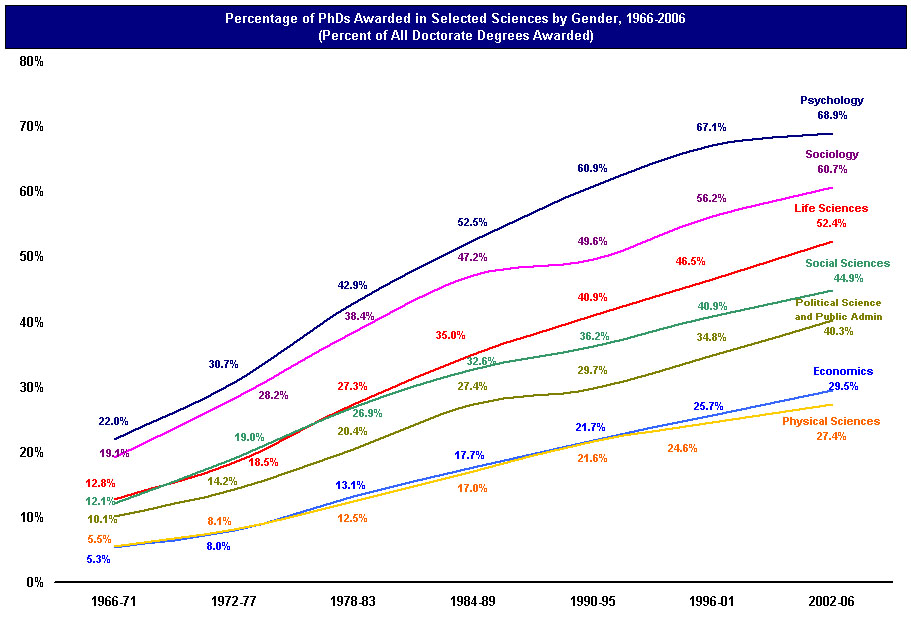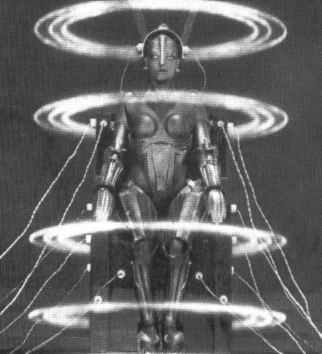Women in Economics Education
Why women in economics education?
Economics is an interesting field to look at the role of women in because there are fewer women PhD’s than in other social science fields.
Though I chose to look at women in economics education, I don’t think that this is totally restricting in terms of gender. Since economics is considered by many to be a “masculine” field, women who choose to pursue and economics education are performing masculinity. It is also possible that women need characteristics that are traditionally considered “masculine” to succeed in economics, like being assertive in class or being good at math. It is possible that women avoid economics because they don’t want to be seen as masculine, because it might hurt their chances of getting married.
There could be something inherently masculine in the construction of economics education. Because there is a cultural assumption that women aren’t as good at math as men are, its possible that women come into economics course not as well prepared as they would have been if they were men. It is also possible that expectations for women are not as high as they are for men in economics classes because of this assumption. There could also be something about the classroom environment that favors men over women. Just like in the Comp Sci survey done at Bryn Mawr and Swarthmore, all students felt more comfortable in the classroom when there was a higher proportion of women.
Studying women in economics education is particularly interesting, because one of the important factors in determining the economic growth of a developing nation is the education level of women. Increasing the education of women generally means lower fertility rate, which has a powerful positive short term effect on economic growth, as well as bringing more women in to the labor force by giving them the skills they need to work. Bringing women into the workforce also increases the equality of distribution of income in countries, because more women from lower income families tend to work than women from higher income families. When women are in charge of money, they are more likely to spend it on investments in human capital for their children, such as health care and education, than men are. So when women have the money, their children are more likely to benefit from that money and become more productive citizens. So I think it is interesting to look at the education of women in economics, since economically speaking maximizing the education of people, regardless of gender, is very important.
Format:
I decided to “model” the progress of women in economics education through hypertext because I think it demonstrates the “leaky pipeline” model of women in academia. At each point, female students have to decide what to do next without complete information; they can only guess what the result of choosing to continue in economics or not will be. I thought the hypertext conveyed this sense of a lack of information, and limited choices. As I am creating this, I want the story to allowed the readers/viewers of the website to put themselves in the shoes of the female students trying to make decisions, and I hope the quotes and references to research studies give a descriptive quality, as well as making the whole thing feel more credible. The story is not trying to describe the average experience of a female who could possibly be an economics major. Instead, it is trying to show some of the factors in why an individual female student might or might not become an econ major.
Here it is:


